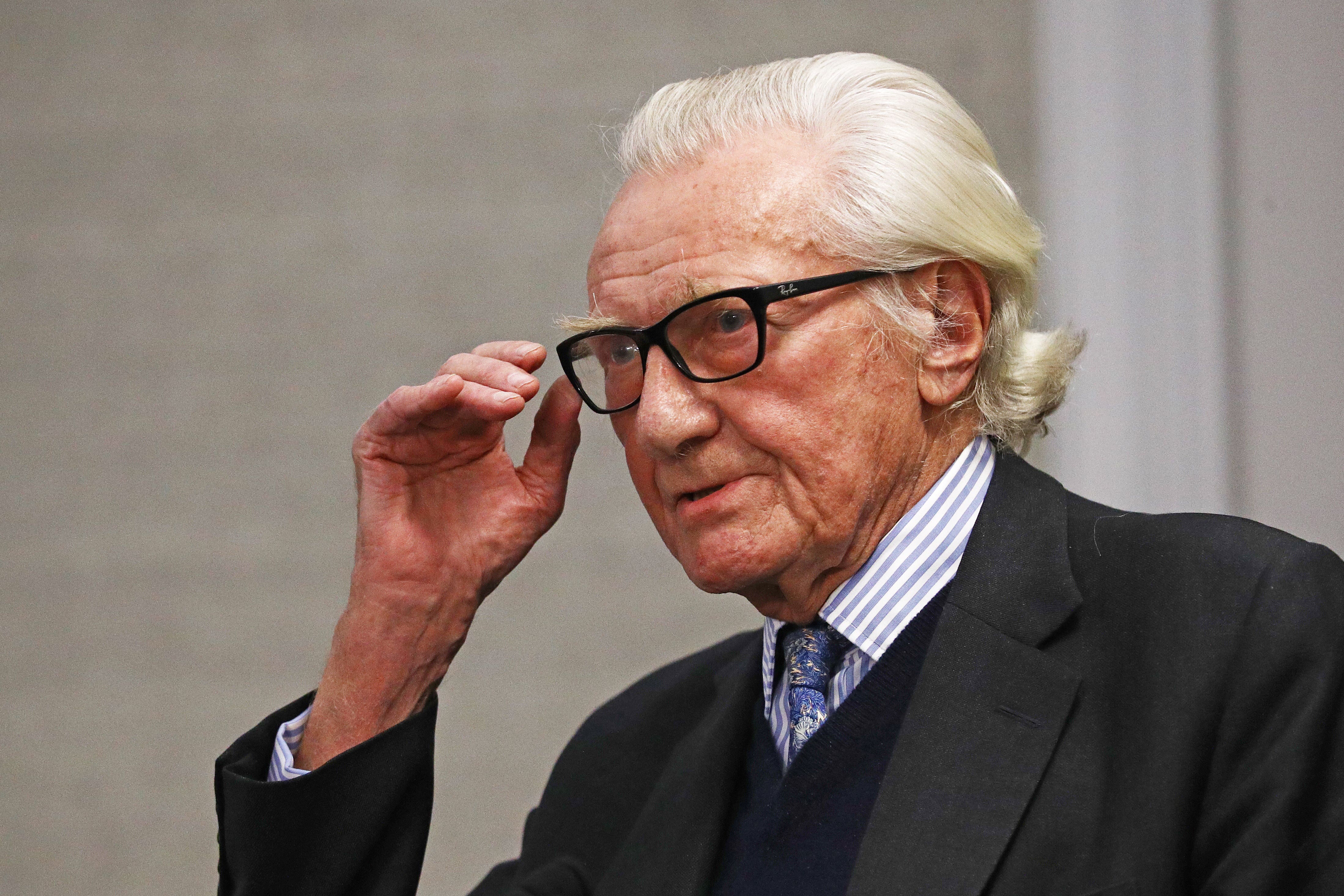Michael Heseltine: Beyond being credible in opposition, there are three things the Tories must do to survive
Following its historic defeat at the hands of Labour, former deputy prime minister Michael Heseltine explains what the Conservative Party needs to do to make a comeback


Rishi Sunak must now perform his last great service to our country: he must stay on long enough to set the sails for a Tory revival.
Let us immerse ourselves in a very cold shower. We have lost, and we are going to stay lost for the best part of five years. Forget the adrenalin of power. Forget the trappings of office. They have all – and for many senior members of the party will stay – gone.
We are in the business of opposition. I have been there more often than I would have wished. It is thankless, grinding, and with few rewards, save only the ultimate prospect of a return to power. In government you can usually produce statistics to at least argue that you made a difference. The currency of opposition is headlines. To earn this currency, you must feed the voracious appetite of Fleet Street.
The first decision is to put any thought of new policies on the back burner. There is a cynical (but sadly realistic) saying that the way to success in politics is to wait to see which way the crowd is running, and then dash out in front of it shouting, “follow me!”
Our party cannot produce constructive policies at the moment which appeal to the right-wing extremes of Reform, and at the same time restore faith in the centre-leaning southern seats. Your job now is to oppose – if I may revive one of my phrases – before breakfast, lunch, tea and dinner, and then get up the next day and do it all over again.
The party is split down the middle. There is only one safe way to avoid tearing ourselves apart, and that is to take advantage of the years ahead before anyone will be seriously interested in our policies.
Keir Starmer understood the critical rule of opposition, which is to promise change. This is what every opposition does in general elections. If people feel relatively well off, they vote for the government for fear that the other guy will ruin it. If they are frustrated by frozen living standards, they vote for change.
That is what a nation worn out by the stresses of frozen living standards has just voted for. Labour learned with their non-dom tax proposals that oppositions should not hand good ideas to the government to steal. Even worse, they should not produce bad ideas to feed the frenzy of the Daily Mail and Telegraph, only too delighted to use their column inches to deflect attention away from the failings of the government.
The Labour manifesto gives no serious set of details to cope with the challenges we face. Reform has landed us with a Labour government with the use of a handful of phrases which even they admit do not constitute a serious programme, but which are designed to whet the gut instincts of racism, populism and nationalism.
It is not possible to predict the circumstances at the time of the next election. The government will create its own record and in it, its own targets. The Conservative opposition must be the most professional, fast-moving attack force it can be.
They are not particularly good at it. Too many of their candidates have interests to divert them in their leisure hours, whilst parties on the extreme attract people who are prepared to give their every waking moment to the causes in which they believe.
There are three other steps that the opposition must anticipate:
First there will be by-elections. There must be a very professional, well-resourced fighting team put in place to deal with them. The quality of the candidate must be up to the job, and the longer the time devoted to the campaign the better. Careful intelligence may predict the likelihood of victory. I remember Jack Weatherill, the whip, telling me as we kept the Commons sitting all hours, “We are in the by-election business.”
Second, Anthony Wedgwood Benn was a master communicator. I suffered under but learned from him. A key lesson was the value of repetition in political communication.
Reform is largely responsible for the size of the Labour majority. Every day, on every occasion, this responsibility must be pinned on them. It will be a key part of the campaign at the next election.
Third, at my age I don’t want to get into speculation about longevity, but in five years’ time a significant part of this electorate will have other things to concentrate on. A new generation will have been enfranchised, and even possibly enhanced by an extension of the franchise to 16-year-olds. Europe, climate change certainly, but other things as well will have a different political salience to them.
Governments lose elections. They make mistakes. Events over which they have no control pile up the demand for action. We can all list the catalogue of events that overwhelmed the present government, and certainly I would argue that, with the economic circumstances of the past few years, the outcome was inevitable even before Rishi Sunak became prime minister.
He did not cause the Covid crisis, and his attempts to contain the damages were not only right, but would have been justification for serious criticism had he done less.
This debate will fade, and he has the challenging task before he goes of turning the natural party of government into an opposition driven by its hunger to restore that reputation.
Lord Heseltine is a former deputy prime minister of the United Kingdom
Join our commenting forum
Join thought-provoking conversations, follow other Independent readers and see their replies
Comments
Bookmark popover
Removed from bookmarks